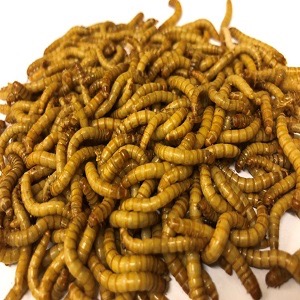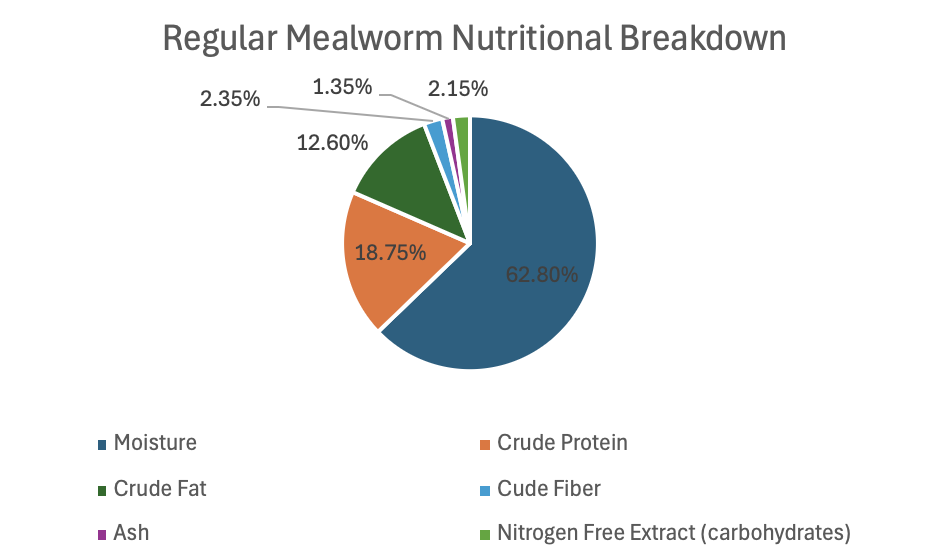
Mealworm Care Sheet
Mealworms (regular, small regular, mixers, large mini, mini, or giants) are the larvae of the Tenebrio molitor. Their diet (progrub, bran and carrot) is vegetarian which means that they are safe to feed to animals and birds without passing on the potentially fatal diseases present in meat fed larvae such are maggots.
They are a clean, odourless and relatively inexpensive livefood, rich in protein and easy to store.
Regular mealworms are popular as Livefoods for many species of cage birds, garden birds, reptiles, small mammal and bats. Mini mealworms are fed to smaller species of cage birds, baby birds and bats.
Giant mealworms
Bulk mealworms must be unpacked as soon as they arrive. To prevent escape, tip the contents of the bag into a large plastic bucket and take the bucket outside. Shake all the worms off the egg card and discard it. Transfer the worms into a suitable container and ensure that they are no more than 1inch in depth and add progrub or bran a slice of carrot can be added for moisture.
Prepacked and maxi pack tubs can be stored in the tubs in a cool dark place you will need to add extra progrub or bran.
Mealworms should be stored in a cool, dark, well ventilated space. Prolonged exposure to temperatures between 5° C will kill mealworms, but if they are stored at the ideal temperature of 8-10 °C in adequate food (bran or progrub) they can keep for several weeks.
If stored at above 22°C mealworms will do what comes naturally and pupate very quickly.
Inadequate ventilation will cause high humidity and encourage mites to develop. Mites are tiny grey arachnids (members of the spider family) whose eggs are present in flour products such as bran. Warm humid conditions cause the eggs to hatch, and the mites breed quickly.
Livefood Accessories:

A Pie Chart Showing the Nutritional Breakdown of A Mealworm




